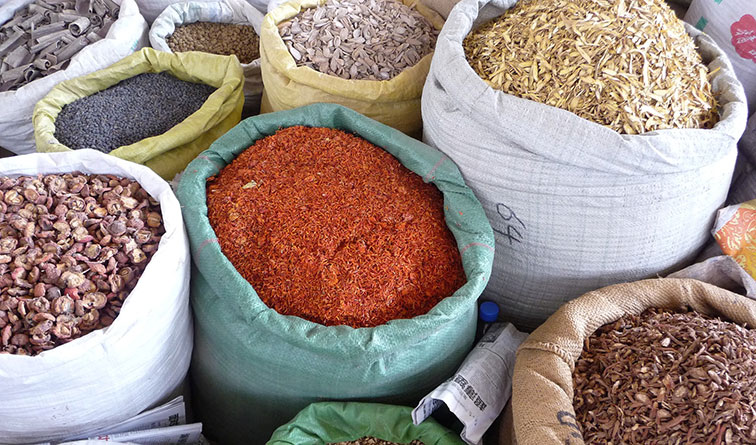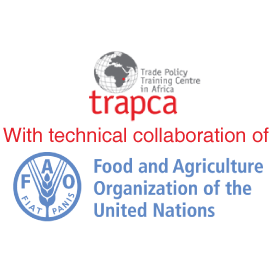
Introduction
The Agreement establishing the African Continental Free Trade Area (AfCFTA) was presented for signature to African Union (AU) Members during AU’s Extraordinary Summit held in March 2018, Kigali Rwanda. The Agreement marked the first time the AU Members took a decisive step towards achieving actual continental economic integration. To date 52[1] out of 55 African Union Members have signed the Agreement. With 22 ratifications needed for the AfCFTA to enter into force[2], as of 3rd May 2019, 23 out of 52 AU Members deposited their instruments of ratification with the Chairperson of the AU Commission.[3] As stipulated in the Agreement, tariff barriers will be significantly reduced from their current levels of around 6.1% on average. The AfCFTA, is expected to create a common market of more than a billion people, with a combined gross domestic product of about $3.3-trillion.[4] It is further expected to contribute to an increase of intra-African trade by 50%. In this context, there is growing attention towards the implications of the AfCFTA for agricultural trade and development; a sector that accounts for roughly 15% of GDP, and 50% of employment on average across African countries. This policy brief therefore sheds light on AfCFTA provisions affecting the agriculture sector.
2. Progress on AfCFTA Market Access Negotiations
One of the key objectives of the AfCFTA is to integrate African markets, through the elimination or reduction of tariffs on goods and services. Some progress has been made with regard to the objectives of market liberalization and the principles governing the Agreement, however the schedules of tariff concessions are yet to be negotiated. As such, no specific commitments have been undertaken on market access for agricultural products.
Objectives and Principles:
- Market liberalization through an iterative process of negotiations: As part of general objectives, Article 3(b) of the AfCFTA provides for the creation of a liberalized market for goods and services through successive rounds on negotiations.
- Progressive elimination of tariffs and non-tariff barriers: Article 4 on specific objectives adopts a “progressive approach” to elimination of tariffs and non-tariff barriers to trade in goods and liberalization of trade in services.[1] This approach is further codified in Article 2 of the Protocol on Trade in Goods, which sets out progressive elimination of tariffs and non-tariff barriers as a means to achieve its main objective which is the creation of a liberalized market for trade in goods.[2]
- Key principles governing the Agreement: Article 5 outlines the key principles governing the AfCFTA. These include: flexibility and special and differential treatment (SDT); reciprocity; and substantial liberalization. In the case of “Special and Differential Treatment”, Article 6 of the AfCFTA’s Protocol on Trade in Goods creates an obligation on State Parties to “…provide flexibilities to other State Parties at different levels of economic development or that have individual specificities … These flexibilities shall include, among others, special consideration and an additional transition period in the implementation of this Agreement, on a case by case basis.”.
Tariff concessions:
The 7th Meeting of the African Union Ministers of Trade held from 12-13 December 2018 agreed on the designation of sensitive products and exclusion list at 7% and 3% respectively. This represents a level of ambition that is no less than 90% of total trade.[1] While the stated level of ambition of the AfCFTA in respect of trade in goods is fairly high, the tariff concessions are yet to be negotiated. The Protocol on Trade in Goods’ Article 8 on schedules of tariff concessions provides for a “stand still effect” of which the starting point for negotiating tariff concessions would be the de facto level of liberalization in RECs. Therefore, State Parties that are members of RECs with higher level of elimination of tariff and non-tariff barriers are obliged not to raise barriers beyond such a level. Moreover, they are encouraged to improve upon, where possible, those higher levels of trade liberalization. This Article not only ensures that preferences granted under the AfCFTA are commercially meaningful by virtue of its standstill effect, but also that the tariff and non-tariff regimes at REC level become the basis from which concessions are exchanged hence keeping with the principle of preservation of the acquis. In this context, AfCFTA’s Protocol on Trade in Goods incentivizes reconciliation of tariff and non- tariff regimes across RECs. The AfCFTA Protocol on Trade in Goods further provides for a “no roll back” clause in Article 7 on import duties. State Parties are therefore obliged not to impose any new import duties or charges except in cases allowable under the Agreement.
It is important to note that the AfCFTA provides for a right to protect infant industries as per Article 24 of the Protocol on Trade in Goods albeit on conditional basis. In the first instance, to protect infant industries a State Party would be required to have taken reasonable steps to overcome difficulties associated with that industry. It is important to note that the Agreement does not define what constitutes “reasonable steps”. Nonetheless, it is expected that guidelines on infant industry protection will be developed in due course and provide guidance on what constitutes “reasonable steps”. Article 24 provisions importantly set the conditions under which protection measures over an infant industry may be applied and these include the requirement that they are non-discriminatory and the specification of a time period set for the application of the measures concerned.
3. Progress on provisions affecting agricultural trade
As mentioned earlier, no specific market access commitments have been undertaken yet and that also includes agricultural goods. It is expected that progress in those negotiations will also include concessions with regard to agricultural tariffs. That said, there are some specific provisions that relate to trade in agriculture.
• SPS Provisions: In several of its provisions, Annex 7 on SPS is informed by the WTO Agreement on the Application of Sanitary and Phytosanitary Measures. Article 3 states that in their preparation, adoption and application of SPS measures, State Parties shall be guided by the provisions of the WTO SPS Agreement. As such, the main principles of the WTO SPS Agreement apply also to the AfCFTA. Articles 7 and 8 on equivalence and harmonisation respectively, are also heavily based on the WTO SPS Agreement. Article 8 additionally makes reference to regional priorities and progress on harmonising SPS measures. For instance, it states that State Parties shall cooperate in the development and harmonisation of SPS measures, based on international standards, guidelines and recommendations, taking into account the harmonisation of SPS measures at the regional level. It also provides for State Parties to establish harmonized SPS import requirements for a commodity that is jointly identified as a priority.
• Rules of Origin: The negotiating parties have adopted product specific rules of origin as their preferred approach. This will apply across all products including agricultural products. Article 7(2) of Annex 2 on rules of origin sets an obligation on the part of State Parties, namely that food aid shall not be considered as originating from any one of them. This Article aims to prevent a possible circumvention of rules of origin and frustration of the objectives of the Agreement.
On export measures, Article 10 of the Protocol on Trade in Goods prescribes non-discriminatory and conditional imposition of export duties. Moreover, State Parties must notify the AfCFTA secretariat prior to the imposition of such measures. As well, Annex 3 on Customs Cooperation and Mutual Administrative Assistance obliges State Parties to exchange information on customs matters in relation to changes in customs law, domestic legislation, procedures and duties as well as commodities subject to import or export restrictions. By the same token, Annex 4 on Trade Facilitation obliges State Parties to publish import, export or transit restrictions or prohibitions.
4. State of Play in AfCFTA Negotiations
The process of AfCFTA negotiations is expected to last up to 2020. This process will entail the following non-exhaustive list of pending negotiation issues:
• Development of a mechanism for identifying, reporting, resolving, monitoring and elimination of Non-tariff barriers,
• Organize a Signalling Conference for Private Sector on Trade in Services,
• Submission of initial offers and requests,
• Undertake sectoral regulatory assessment/situational analysis,
• Conclusion of Legal Instruments on Investment, Intellectual Property Rights and Competition Policy,
• Development of a mechanism for identifying, reporting, resolving, monitoring and elimination of Non-tariff barriers,
• Annex 1 on Schedules of Tariff Concessions,
• Adoption of all outstanding issues on Rules of Origin,
• Development of Guidelines for Infant Industries,
• Guidelines on implementation of Trade Remedies within the AfCFTA.
These areas are all key to effectual implementation of the AfCFTA, highlighting the significance of the next steps in the AfCFTA negotiations.
References
1. African Union (2018) African Continental Free Trade Area
2. African Union, UNECA and ATPC (2018) African Continental Free Trade Area: Questions and Answers https://au.int/en/documents/20180315/afcfta-questions-answers
3. African Union (2018) 12th Meeting of AfCFTA Negotiating Forum (2018) AfCFTA Negotiations: Road Map for Finalization of Outstanding Work on Phase 1 and Conclusion of Phase II
4. UNECA (2018) It’s time to implement the AfCFTA to stimulate economic transformation in Africa
https://www.uneca.org/stories/it’s-time-implement-afcfta-stimulate-economic-transformation-africa
5. UNECA (2018) AEC 2018: AfCFTA will increase Africans’ freedoms, says ECA’s Elhiraika https://www.uneca.org/stories/aec-2018-afcfta-will-increase-africans’-freedoms-says-eca’s-elhiraika

